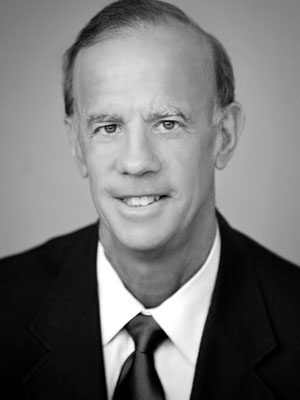Berkeley Public Health alumnus profile: Dr. Paul Hofmann

- DrPH 1994, MPH 1965, BS 1963
- Hometown: Portland, Oregon
- Currently lives: Moraga, California
- Pronouns: he/him/his
For the past 25 years, Dr. Paul Hofmann, Berkeley Public Health alumnus and president of the Hofmann Healthcare Group, has devoted the majority of his time to assisting hospitals and health systems, accelerating their performance improvement efforts as well as writing, speaking, and consulting on ethical issues in health care. He also serves as an advisor to health care companies and as an expert witness.
After 45 years as a health systems professional, Hofmann served a central role in shaping the field’s understanding of health care ethics, for which he received the American Hospital Association’s Award of Honor.
Dr. Hofmann serves on the American Hospital Association Quest for Quality Prize Committee, the Joint Commission’s International Standards Advisory Panel, and the board of the Education Development Center. He is also a co-founder of the Alliance for Global Clinical Training and on its board. He is a past board member of MedShare International and a current member of its Western Region Council. Dr. Hofmann is a co-founder of Operation Access, past board chairman, and a current member of its Advisory Council.
An author or co-author of over 200 publications, Dr. Hofmann has held faculty appointments at Harvard, UCLA, Stanford, Emory, and the University of California.
How did your time at UC Berkeley and Berkeley Public Health challenge you, and how have you applied what you learned during your career?
During my undergraduate days at Cal, I was on the football team for three years and then on the wrestling team during my senior year. In addition, I was very fortunate to be on the Chancellor’s Student Advisory Committee and the Student Judicial Committee as well as chairing the Student Health Committee. I was elected to the Order of the Golden Bear and the 1963 Permanent Class Council. Summers were spent working in hospitals in San Francisco and Oakland, so all these activities were invaluable both personally and professionally.
The hospital administration program in the School of Public Health was a three-year program in 1963: a one-year internship (completed at Berkeley’s Herrick Hospital), a year of course work on campus, and a one-year residency (completed at two hospitals—one in Massachusetts and the other in Maine). During our year of coursework in the graduate program, periodically we had hospital executives as guest speakers. Because students felt we knew everything, our class usually referred to them in a derogatory way as “old dogs” who thought they should tell us about how the “real world” really operated.
Working full-time in health care since 1954, initially as a volunteer, I now clearly meet the definition of an “old dog.” My School of Public Health experiences as an undergraduate with a major in public health, graduate student (Hospital Administration), doctor of public health student (Health Policy and Administration), and then faculty member were so challenging and fulfilling, I hope every lesson learned has been applied at various times during my career.
What were the most transformational parts of your experience at Berkeley Public Health?
Undoubtedly the most transformational part of my experience at the School of Public Health was inextricably linked to the supportive and collegial relationships enjoyed with fellow students and faculty. For many years, I have told friends that phlebotomists are always surprised to find my blood is not red — it’s blue and gold.